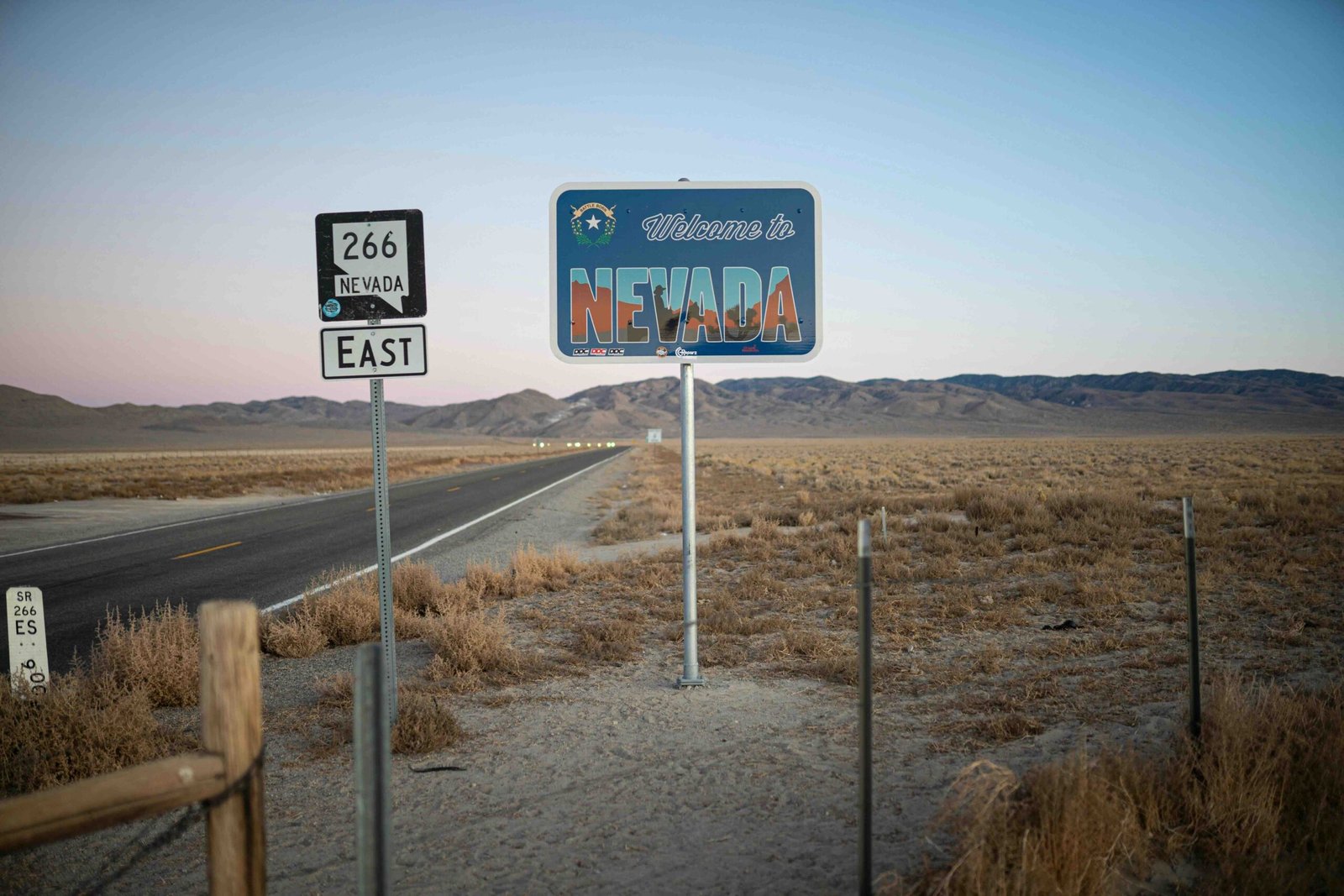 How to Choose the Perfect Destination Wedding Location: A Real How-To-Guide to Picking Stunning Spots Across the United States
How to Choose the Perfect Destination Wedding Location: A Real How-To-Guide to Picking Stunning Spots Across the United States
Planning a wedding isn’t just about finding your perfect dress or deciding on your guest list—it’s primarily about figuring out which destination wedding location can best frame this most memorable day of your life. Don’t minimize this even subconsciously – it’s important. Mountains vs. beachfronts. Lakeside vs. Desert. City Rooftop vs. Countryside Barn. Vineyard vs. Forest. There are so many breathtaking destination wedding locations that cater to every type of style and vision.
But with all the options, it can be daunting. How do you narrow down your choices? We presume this is why you’re here. How do you balance beauty, budget, and convenience for not just you, but also your guests?
Understand from the get this guide isn’t going to just give you a list of popular destination wedding locations in the US—it’s a comprehensive how-to resource designed to help you navigate your decision-making. Here, you’ll learn actionable steps that’ll help you identify how you’d like to envision your wedding, evaluate all the locations you’ve narrowed down, and make a choice with confidence. And for fun along the way, we’ll give you some tips for just some the most stunning options in the country so you feel inspired while your planning.
By the end of this guide, you won’t just know about the best destination wedding locations in the US—you’ll have the tools and knowledge to confidently choose the one that’s right for you.
 How to Choose from the Most Popular Destination Wedding locations in the US
How to Choose from the Most Popular Destination Wedding locations in the US
The US offers a swath of destination wedding locations, yes, from those exquisite beaches and majestic mountains, but also to vibrant cityscapes and charming countrysides. The challenge isn’t finding just a beautiful place—but it’s also about picking the specific one (or two) that align with how you’ve drempt it, your budget, and how your guests will experience it. Don’t forget about them – they may be traveling a distance.
Let’s get started — it helps to think about the key factors, and these we’ll go into more deeply with every option we highlight.
1. Define the Vibe
First, think about the kind of atmosphere you want. Are you imagining a barn surrounded by rolling fields, a view of Central Park and midtown as your backdrop, or how about an enchanted forest replete with mountains and waterfalls? The location you choose will set the tone for everything; decor, attire, you name it. So spend a good amount of time imagining the mood you want and we can move on from there once you’ve got it.
2. Evaluate Guest Experience
Moving right along, when you’re figuring on an ideal destination wedding location, don’t forget your guests’ comfort and accessibility. Is it easy to travel to and does it have accommodations for everyone’s budget? Remember, not all of your guests can afford to stay at the Biltmore. When you choose a remote venue you can plan ahead by arranging transportation or share detailed travel recommendations to ease everyone’s logistics. Airbnb’s usually are available no matter where you go, so explore the area early and make sure there are plenty of options. Starting your search early gives you the best selection. Go ahead and make the reservations or forward the options to your guests – typically speaking they almost all guarantee a full refund if cancelled long enough out.
3. Balance Budget and Beauty

4. Tailor the Venue to Your Style
Every region will offer a range from historic estates, barns, lofts, and open-air pavilions, so choose a venue that complements your style.
5. Plan with the Seasons
Seasonality is key. Spring weddings might feature gardens in bloom and autumn can give you rich, golden scapes. Understand how the landscape, weather, and venue availability change throughout the year.
6. Enhance the Experience with Activities

7. Simplify with All-Inclusive Options
Some venues offer all-inclusive packages that cover catering, decor, and planning, making the process significantly easier. These are particularly helpful for destination weddings, where coordinating logistics from afar can be challenging.
8. Visit in Person
While photos and videos provide a glimpse, nothing compares to experiencing a venue in person. Here at our own venue, we receive reviews that consistently say the photos don’t do the property justice and we presume the same may apply to other venues. A site visit lets you evaluate the space, meet the team, and plan out logistics like parking, accessibility, and ceremony flow.
Beachfront Bliss: How to Find the Best Coastal Wedding Locations
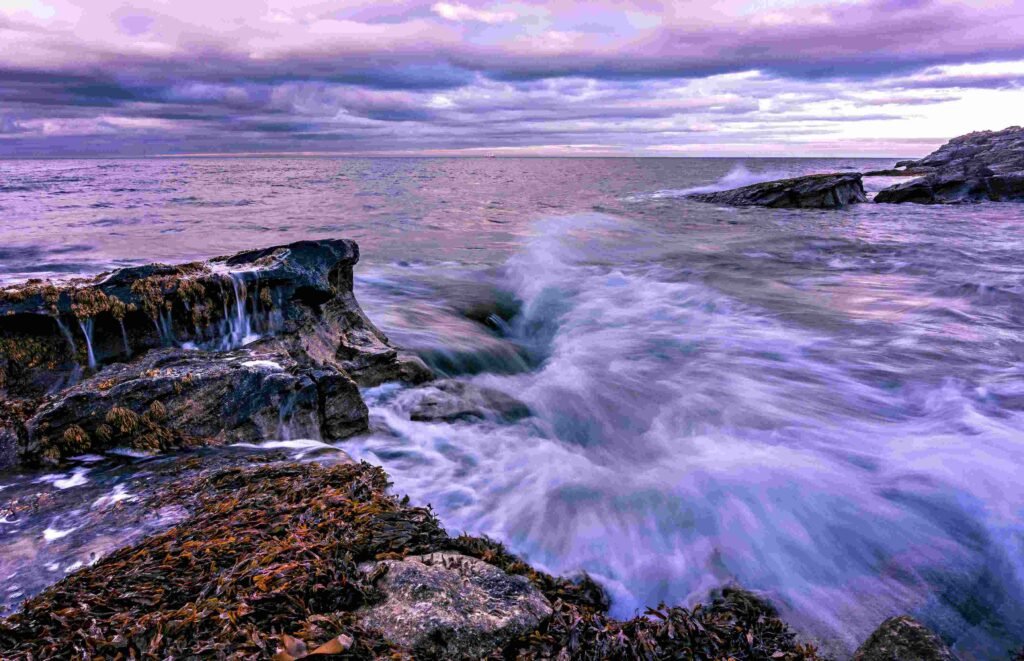
1. Define Your Ideal Beach Vibe
Consider the aesthetic and what speaks to you. Are you imagining the tropical like the Florida Keys and turquoise water or dramatic cliffs like Big Sur?
2. Consider Accessibility for Guests
Accessibility plays a big role in choosing your destination wedding location. Miami Beach is easy to reach and has more accommodations you’ll need, but Tybee Island in GA might require a little more detailed planning. Keep your guests’ convenience in mind as you choose your venue.
3. Research Venue Options
Not every beach is meant for weddings so look for private resorts or beach clubs that give exclusive spaces for ceremonies. Private venues can handle many, if not all, of the logistics that come with hosting a wedding on the beach.
4. Understand Permits and Regulations
Public beaches more often than not will require permits for your ceremony and may have restrictions on amplified music, alcohol, or décor. Research these details in advance or opt for a private venue to avoid complications. Many resorts handle permitting for you, making the process much smoother.
5. Time Your Wedding Around the Environment

6. Explore Lesser-Known Gems
While Malibu is undeniably stunning, quieter options like Bald Head Island, NC, or Cape May, NJ, give breathtaking scenery with a more private, intimate feel. Go ahead and explore the lesser-known destination wedding locations and find those hidden gems that’ll make your wedding special.
7. Think About Guest Comfort
Beach weddings may give you heat, wind, and sand, so provide practical solutions like shaded seating, hand fans, or flip-flops for guests to stay comfortable during the ceremony. Go ahead and include details like beach-friendly attire suggestions in your invitations to help guests prepare.
8. Plan a Site Visit
Visit your chosen beach to assess logistical concerns, such as vendor access, parking, and restroom facilities. A pre-wedding site visit also lets you visualize the flow of your ceremony and reception while ensuring the venue meets your expectations.
City Chic: How to Find Urban Wedding Venues with a View

1. The City’s Vibe
Every city has its own personality, and your choicer will set the tone for your wedding. Want the glamour and energy of New York City or would you prefer the soul of New Orleans? Elegance of Chicago, the artistic spirit of Austin, or the coastal beauty of San Francisco? Start by matching your vibe to the city.
2. Focus on Iconic Views
One of the biggest advantages of a city wedding is its dramatic scenery. Rooftop venues with skyline views or Central Park, the Golden Gate Bridge don’t hurt your photos. Research venues that highlight the city’s most iconic features and decide what view resonates most with you.
3. Prioritize Accessibility for Guests
Cities are convenient for out-of-town guests because they have airports, hotels, and public transportation close by. But do consider the other challenges like traffic or parking availability. Providing a wedding website or digital invitations with clear directions and travel tips will help guests navigate the city smoothly.
4. Explore Unique Urban Spaces
Urban areas aren’t just ballrooms and banquet halls. Think industrial lofts with exposed brick, modern museums with sleek designs, botanical conservatories, or even art galleries. Nontraditional spaces allow for creative décor and your personalized touch, and this can surely make your wedding truly stand out. Maybe even consider historic theaters or libraries with dramatic interiors.
5. Plan for Weather and Noise
City venues, especially outdoor ones, can come with their own challenges. Weather is a major consideration for rooftop ceremonies, so choose a venue that has a backup indoor option. Noise can be another factor— so look for venues with soundproofed areas or indoor reception spaces to avoid disruptions from street noise or yes, even other events competing with yours.
6. Infuse Local Culture into the Experience
Cities are so rich in culture, so why not incorporate some of its local flavors and traditions into your wedding? In New Orleans, how about a brass band for your reception or a second-line parade to celebrate with guests. Serve iconic deep-dish pizza during cocktail hour in Chitown. Make your wedding memorable and connect it to the city you’ve chosen.
7. Look for All-Inclusive Packages
Many city venues offer all-inclusive packages. These can include catering, décor, and planning services, saving you time and simplifying everything. Compare package options so you know which one best meets your needs and stays within budget. Some venues even partner with nearby accommodations, offering room blocks for your guests.
8. Schedule a Venue Walkthrough
Photos and virtual tours are helpful, but nothing beats experiencing the venue in person. Schedule a walkthrough at your shortlisted venues to get a sense of the layout, lighting, and overall ambiance. Use this visit to discuss logistics, like vendor access, parking, and contingency plans, with the venue coordinator. Seeing the space firsthand will help you envision how your day will unfold.
Conclusion for City Weddings
City settings are among the most sophisticated and dynamic destination wedding locations in the US. Exchanging vows on a rooftop with panoramic skyline views or inside a landmark building can bring such amazing energy and charm.
Mountain Majesty: How to Choose the Perfect Mountain Wedding Venue
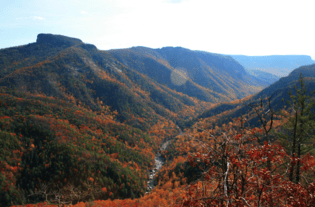
1. Define Your Ideal Mountain Setting
Dramatic alpine views like the Rockies or the softer, tree-covered slopes of the Blue Ridge are just two. Do you want rustic lodges, wide-open meadows, or a lakeside spaces? Mountain venues come in all styles from luxury resorts with all the full-service amenities to your remote, intimate spots that focus more on seclusion and natural beauty. Weddings Over Waterfalls in North Carolina, for example, combines forested charm with cascading waterfalls for an unforgettable setting.
2. Research Elevation and Accessibility
Mountain venues can be remote and vary widely in elevation, which may pose challenges for guests. Higher altitudes like in Colorado or Utah require some special considerations especially for guests, while lower-elevation venues in areas like North Carolina and Tennessee tend to be a little easier. Look for venues that offer nearby accommodations, clear directions, and parking options. Consider providing transportation, such as shuttles, to simplify logistics for guests.
3. Look for Unique Features
Mountains are filled with natural features that make these sorts of wedding venues unforgettable. Some are fortunate enough to feature panoramic views, wildflower meadows, or serene rivers and streams, while others may include dramatic cliffs or hidden waterfalls. Instead of focusing on the venue’s amenities alone, think about how the surrounding landscape can enhance things. A mountaintop ceremony, for example, creates a sense of awe, while forested trails can make for magical photo opportunities.
4. Plan Around the Season
Every season offers its own beauty in the mountains, but it can bring some challenges too. Spring and summer will give you greenery and blooming wildflowers, fall offers changing foliage. Winter weddings can be wonderful with snow-covered peaks, and while they are undeniably romantic they can require additional planning.
5. Consider Guest Comfort
Mountain venues often appeal to couples seeking adventure but you can’t overlook guest accessibility concerns. Look for venues with on-site lodging or nearby hotels or Airbnb availability to ensure everyone has a comfortable place to stay. Provide clear travel instructions and consider coordinating group transportation, especially if the venue is located off winding mountain roads or requires specialized vehicles for access.
6. Look for All-Inclusive Packages
Many mountain venues offer bundled services designed to simplify your wedding planning. These packages often include essentials like florists, photographers, planners, and officiants, (see our blog on how to choose amongst these packages) which can be invaluable for destination wedding locations where finding local vendors may be more challenging. Larger venues, such as luxury resorts and lodges, frequently provide comprehensive packages that handle most of the details for you. Smaller, boutique venues may not include full packages but often maintain partnerships with trusted vendors and can provide referrals to create a personalized all-inclusive experience tailored to your needs.
7. Incorporate Activities into the Weekend
Mountains naturally inspire a sense of adventure, so consider making your wedding weekend an immersive experience for everyone coming. Offer optional activities like guided hikes, zip-lining, or bonfire gatherings to create a memorable getaway for everyone. In locations near national parks, you can also suggest day trips for guests who want to explore the area further.
8. Schedule a Venue Visit
Photos can’t fully capture the scale, accessibility, or layout of the space. Walking the venue allows you to evaluate ceremony and reception areas, discuss logistics with staff, and imagine how your event will flow. Be sure to ask about weather contingencies, power sources for vendors, and parking or shuttle options during your visit.
Rustic Romance: How to Select a Countryside Wedding Spot
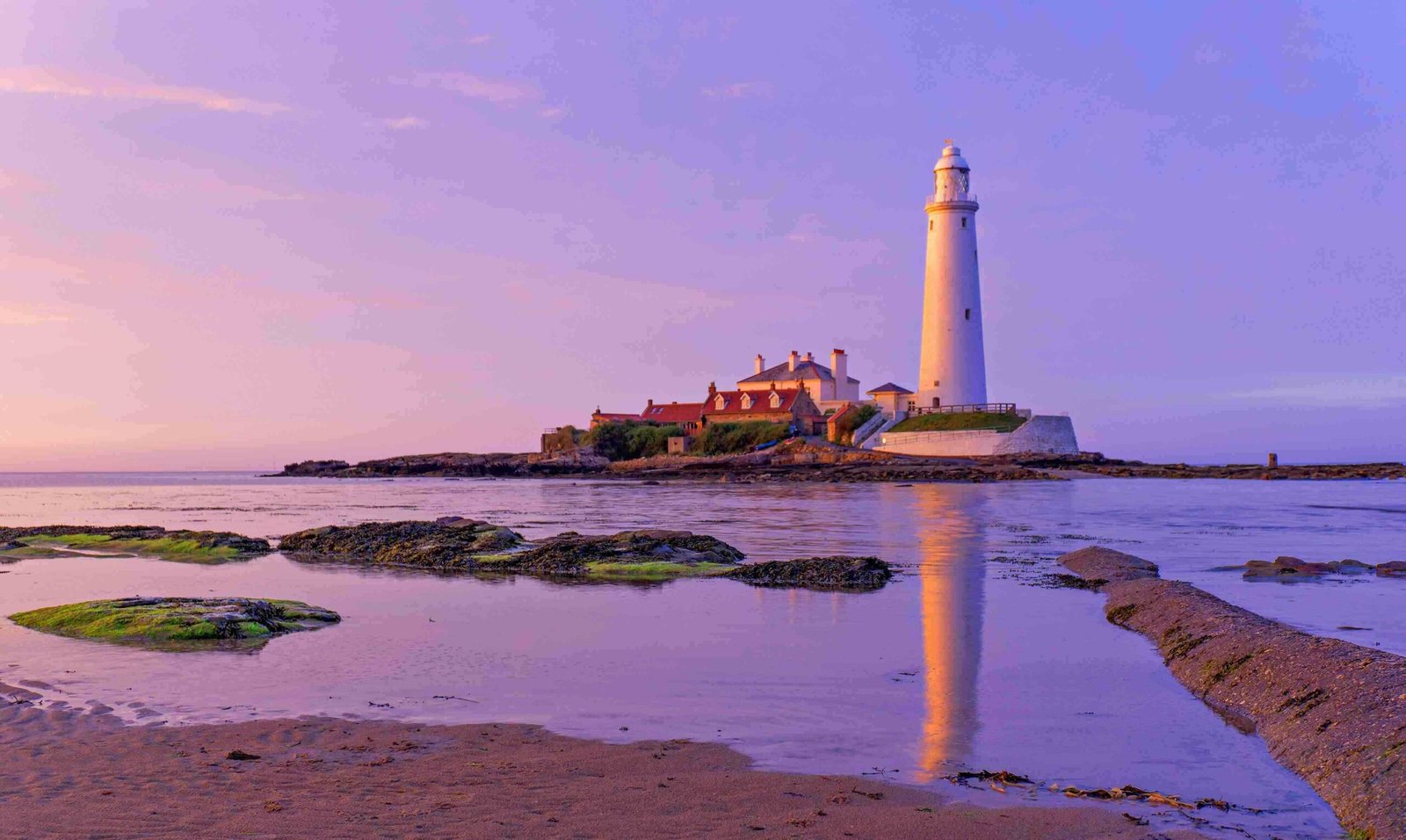
1. Match the Venue to Your Style
Countryside venues come in so many varied styles, so it’s important to choose one that has what you envision. Are you drawn to a barn with exposed wooden beams and string lights, or are you more of a refined elegance type who would rather choose a vineyard estate with rolling hills? You may even opt for a farm with a down-to-earth vibe. Define your atmosphere — laid-back and rustic or polished and more sophisticated — and narrow your search to venues that align with that aesthetic.
2. Focus on Scenic Backdrops
One of the greatest appeals of countryside venues is their natural beauty. Look for breathtaking views of vineyards, open pastures, orchards, or woodlands. Outdoor ceremony spaces are always popular in rural settings where you exchange vows against a breathtaking backdrop. Some venues feature charm like pergolas, garden arbors, or even windmills or silos, and all provide some stunning photo-ops.
3. Explore Different Venue Types
Family-owned farms can have that cozy and personalized feel, while estates can bring grandeur and elegance. Boutique wineries give sophisticated amenities, making them great for couples who want scenery and class. Touring a variety for a clearer picture of what’s available and fits your guest list size, logistical requirements, and overall theme.
4. Consider Practical Amenities
While these venues are undeniably charming, some may lack the convenience or amenities. How are their heating and cooling systems, indoor restrooms, and backup power for vendors. If you’re considering a barn wedding, ask whether the venue offers portable heaters, air conditioning, or other rentals to keep guests comfortable regardless of the weather. Make sure the property has proper lighting for evening events and assess whether parking is adequate for your guest list.
5. Check Seasonal Availability
The countryside transforms dramatically with the seasons, and many venues look their best in spring and fall when flowers are in bloom or the leaves change color. Talk to venue coordinators about how the property adapts to each season and whether any seasonal décor or landscaping changes are included. For winter weddings, ensure the venue has adequate indoor space and heating, while summer weddings may require shaded outdoor areas or fans for cooling.
6. Work with Local Vendors
Many rural venues have partnerships with trusted local vendors who are experienced in working in the area. These professionals understand the unique challenges of countryside weddings, such as navigating gravel roads or setting up in outdoor spaces. From caterers who know how to work in rustic kitchens to florists familiar with local blooms, these experts can help bring your vision to life.
7. Provide Guest Accommodations
Countryside venues are often located far from major hotels, so it’s essential to think about accommodations for your guests. Some venues offer on-site lodging, such as cottages or guest houses, while others may partner with nearby inns or Airbnbs. Include a list of recommended lodging options in your invitations or wedding website, and consider offering shuttle services to transport guests to and from the venue. You can even arrange for group stays at a charming local inn or bed-and-breakfast.
8. Visit to Visualize Your Day
Countryside venues often have hidden details that photos simply can’t capture. Schedule a site visit to walk the grounds, explore potential ceremony and reception areas, and get a feel for how the space flows with your guest list and planned activities. Pay attention to elements like natural lighting, accessibility, and available photo spots. A visit also allows you to ask the venue coordinator any questions about logistics, amenities, and backup plans, ensuring you’re fully prepared to make the most of your chosen location.
Unique and Unconventional: Finding Offbeat Wedding Destinations
For couples looking to break away from tradition, unconventional wedding destinations offer a chance to craft a one-of-a-kind event. These venues allow you to blend creativity and individuality, creating a wedding that’s uniquely unique. It could be an industrial warehouse or a breathtaking outdoor location, offbeat venues can be transformative. Here’s how to find the perfect unconventional spot:
1. Identify What Makes It Special
Offbeat venues are all about personalization. To find the right fit, think about what you and your partner value most—adventure, art, history, or nature. Do you dream of exchanging vows under the stars at a planetarium, or are you drawn to the idea of an intimate celebration in a botanical garden? Reflecting on what defines your relationship will help you choose a venue that feels meaningful and memorable.
2. Consider Unusual Spaces
Unconventional venues provide an opportunity to craft a wedding that’s truly one of a kind. Imagine celebrating your big day in a restored train depot, where vintage charm and architectural details like exposed beams and antique fixtures create a timeless ambiance. Or host your wedding at a rustic cider mill, where the scent of fresh apples and the warm glow of string lights make for an intimate and inviting fall celebration. For a more modern flair, consider an aquarium, where vibrant marine life provides a living, ever-changing backdrop for your ceremony or reception. By thinking outside the box and exploring venues like these, you’ll create a memorable celebration that stands apart from traditional settings.
3. Embrace Nature’s Beauty
For outdoor-loving couples, some of the most unique destination wedding locations in the US are set in natural environments. National parks like Yosemite or the Grand Canyon provide breathtaking backdrops, but smaller, less-crowded locations can be equally inspiring. A secluded forest and a private beach offer glorious settings.
4. Look for Cultural Venues
For couples who value art, history, or performance, cultural venues can make a big statement. Art galleries add a touch of vibrancy, while museums provide timeless elegance. Historic theaters or opera houses are perfect for creating a dramatic and romantic atmosphere. These venues often come with unique architectural details that make decorating simple, allowing the space itself to take center stage.
5. Plan for Accessibility
Unconventional venues can present logistical challenges, so it’s important to consider accessibility for both guests and vendors. Does the venue have enough parking? Are there restrooms, and is the space wheelchair-accessible? If your venue is located in a remote area, provide transportation options like shuttles or rideshares. For destination weddings, ensure there are nearby accommodations to make the experience seamless for your guests.
6. Research Permits and Restrictions
Non-traditional venues, especially outdoor ones, often require permits or come with specific restrictions. National parks, for example, may limit the number of guests or require advance approval for amplified sound or decorations. Even private venues may have rules about catering, alcohol, or decor. Contact the venue or local authorities well in advance to understand what’s required and build any necessary timelines into your planning process.
7. Personalize Your Decor
One of the best things about unconventional venues is that they often serve as blank canvases. This gives you the freedom to use creative decor, lighting, and furniture to transform the space into something that reflects your personality. String lights, fabric drapes, or bold floral installations can elevate a warehouse or garden into a dreamlike setting. Work with vendors who are experienced in nontraditional venues to ensure seamless execution and innovative ideas.
8. Visit the Venue to Plan Logistics
A site visit is essential for any unconventional wedding venue. Walking the space allows you to visualize the layout, identify potential challenges, and finalize plans for vendor setups, guest flow, and weather contingencies. Use this visit to discuss logistics with your planner or venue coordinator, such as where to place tables, how to manage parking, or what backup plans are needed in case of rain. This extra preparation ensures your wedding day runs smoothly.
Conclusion for Offbeat Weddings
Unconventional venues are some of the most exciting and unique destination wedding locations because you have the opportunity to design your day completely differently than those choose the more traditional path. Go ahead and embrace creativity and create a wedding that stands out from the rest. Art gallery, botanical garden, or an outdoor escape, an offbeat wedding destination guarantees a day that is unforgettable and uniquely yours.
Planning Your Destination Wedding: Tips and Advice
Planning a destination wedding can be exciting and rewarding but you have to coordinate logistics and keenly be aware of your guests and their own good time. Here are some key tips to help you plan your destination wedding with confidence:
1. Hire a Local Planner

2. Communicate Early with Guests
Your guests will need plenty of time to plan their trip, so keep them informed from the start. A wedding website is an excellent tool for sharing travel tips, recommended accommodations, and a detailed itinerary of the events. Include information about transportation options, nearby airports, and any group rates you’ve arranged for hotels or Airbnbs. Sending out save-the-dates as early as possible gives your guests the chance to book travel and accommodations at favorable rates.
3. Prepare for Contingencies
Destination weddings often involve variables beyond your control, such as unpredictable weather or travel delays. Create backup plans for critical aspects of your day, including an alternative location for your ceremony or reception if it’s outdoors. Work with your planner or venue to ensure they have plans in place for issues like power outages, rain, or heat. If your location is remote, confirm that vendors have backup equipment on hand, such as generators for lighting or sound systems.
5. Plan Your Budget Carefully
Destination weddings come with unique expenses, such as travel, accommodations, and additional shipping fees for decor or attire. Create a detailed budget that accounts for these extras and include a buffer for unexpected costs. Look for venues that offer all-inclusive packages, as these can simplify planning and help you stay on budget by bundling multiple services like catering, decor, and coordination.
Conclusion for Destination Wedding Planning
Planning a destination wedding requires extra attention to detail, but with thoughtful preparation, you can create a celebration that’s as seamless as it is memorable. From hiring a local planner to ensuring your guests feel welcomed and cared for, these tips will help you navigate the process with confidence. Whether your destination is a tranquil beach, a charming countryside venue, or a mountain retreat, your careful planning will ensure a day that you and your guests will cherish forever.
Conclusion: Making Your Dream Wedding a Reality
Choosing the perfect destination wedding location is about more than finding a picturesque setting—it’s about crafting a celebration. Every couple’s dream is unique, so the magic of a destination wedding lies in its ability to transform that dream into a tangible, unforgettable experience. Whether you’re considering the most popular destination wedding locations or seeking hidden gems, the key to making your big day truly special isn’t just in the setting—it’s in the thoughtful planning, personal touches, and the joy you share with everyone who takes part.
Remember that this is your moment to create a day that is so uniquely yours. Take careful time to research, plan, and personalize every detail because you’re not just organizing a wedding—you’re creating a lifelong memory for yourselves and your guests. Think about those weddings you, yourself, cannot forget as a litmus. This is your chance to dream big, embrace creativity, and celebrate your love in one of the many extraordinary destination wedding locations in the US.
Indeed – take the leap, trust your instincts, and enjoy the process. With the right location, careful preparation, and an open heart, your destination wedding will be a stunning and joyous celebration that echoes in your memories forever. Your dream wedding is within reach—go make it a reality.
Not tying the knot? You’re still more than welcome here. Our Airbnb (but book directly!) is open year-round for couples just looking to unplug, reconnect, and enjoy the waterfalls without the guest list. It’s peaceful, private, and perfect even if you’re not saying “I do.”

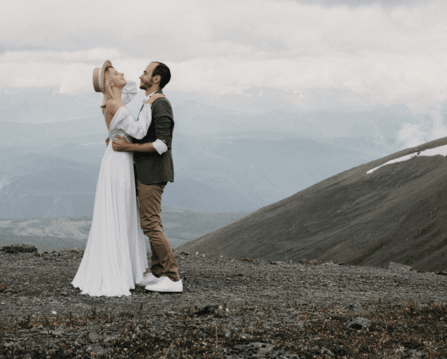
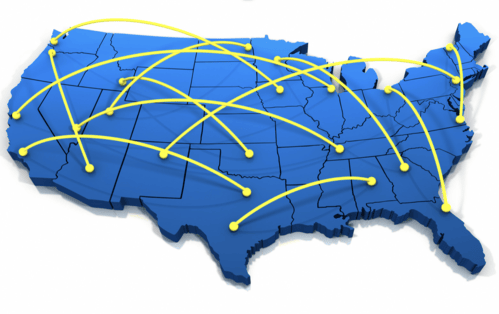 How to Choose from the Most Popular Destination Wedding locations in the US
How to Choose from the Most Popular Destination Wedding locations in the US